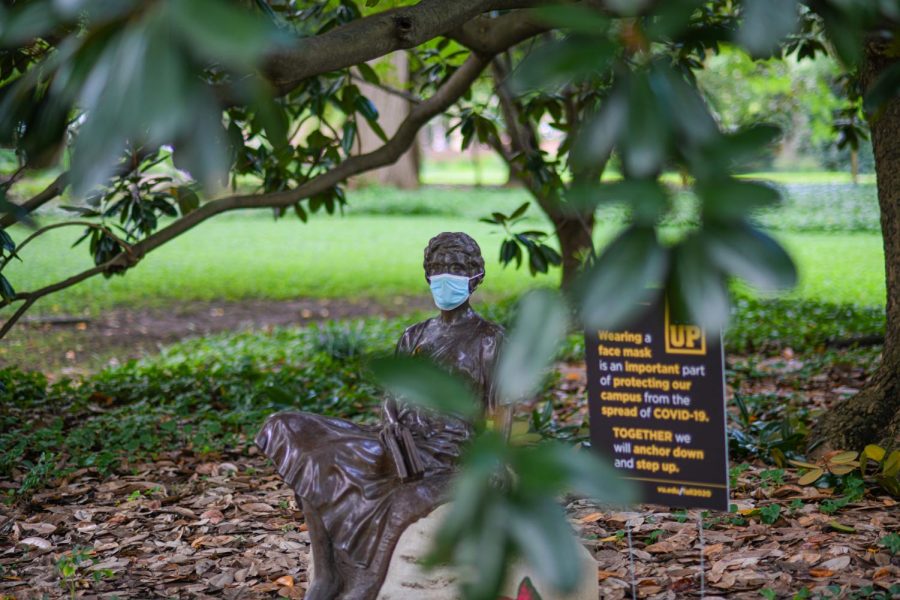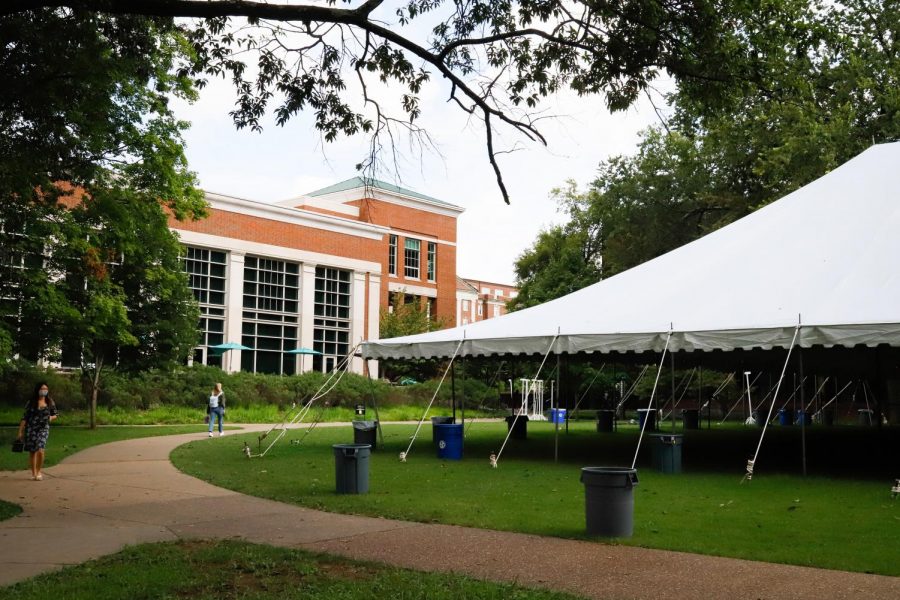Vanderbilt continues to react to daily changes to the globalization of the coronavirus (COVID-19): a Feb. 28 email from the Dean of Students Office announced that Vanderbilt is requiring all community members traveling to China, South Korea, Italy or Iran to update the university of their travel. Such individuals must also self-isolate off-campus for 14 days following their return or face disciplinary action from Student Accountability.
Friday’s updates follow the Center for Disease Control’s (CDC) elevation of Iran and Italy to Level 3 status: Avoid Nonessential Travel. The Chancellor’s Office sent an email Feb. 25 updating restrictions on Vanderbilt-sponsored travel to South Korea and China, the two countries with State Department Level 3 (Reconsider Travel) and Level 4 (Do Not Travel) warnings at the time, respectively.
Official changes to study abroad policies in response to coronavirus began when study abroad programs were canceled in Mainland China; this was followed by the suspension of Vanderbilt in Florence Feb 28 by the host program.
On March 1, the CDC posted an update on their website encouraging Institutions of Higher Education (IHEs) to consider suspending study abroad programs.
“IHEs should consider asking students participating in study abroad programs to return to the United States. IHEs should work with state and local public health officials to determine the best approach for when and how (e.g., chartered transportation for countries or areas assessed as high-risk for exposure) their study abroad students might return. All plans for returning study abroad students should be designed to protect participants from stigma and discrimination,” the post reads.
The Office of the Vice Provost of Academic Affairs sent an email to the community in response to the CDC update. The university, having reviewed the message, did not indicate that they will be taking further action at the moment and is monitoring the situation.
“At this point, we believe that the best way to ensure student safety abroad is to continue to work within our existing response frameworks and protocols, which have been developed in professional consultation with peer institutions and health and safety experts,” said the email, signed by Vanessa B. Beasley, Vice Provost for Academic Affairs and Dean of Residential Faculty.
About the Coronavirus
COVID-19 is a specific strand within the coronavirus family spread to humans through a large seafood and live animal market, according to CDC. This virus began in Wuhan, China Dec. 1 and has expanded to over 83,000 total cases with more than 2,800 deaths to 53 countries including the United States, Italy, South Korea, Japan and Singapore.
The United States currently has 65 reported cases, according to the New York Times; three new cases emerged on Friday in California, Oregon and Washington State. The three new cases can’t be explained by international travel or contact with another person with the disease, as the previous cases could, as reported by the Times. The closest case to Vanderbilt is in Illinois.
The World Health Organization (WHO) updated the threat level of a global risk to “very high” from “high” on Feb. 28. The CDC considers the immediate health risk to the general American public as “low,” but the risk to an individual person is based on exposure.
The four countries with the most coronavirus cases following China are Italy, Japan, Iran and South Korea, each holding a CDC Level 3 (Avoid Nonessential Travel) warning except for Japan. Italy currently has 889 coronavirus cases and 21 deaths. South Korea has over 2900 confirmed cases, with 13 deaths. Iran has 388 confirmed cases, with 34 deaths. Japan, the country with a CDC designation of warning Level 2, has 933 cases, with 8 deaths.
Vanderbilt’s Policy Escalation
The Dean of Students Office’s email sent Feb. 28 marks an escalation in the university’s response to the globalization of the coronavirus. The email requires students to report travel to the four countries to the university and to self-isolate upon return.
The Chancellor’s Feb. 25 email initially asked community members to reconsider travel to China and South Korea and also asked those individuals traveling to these countries to self-isolate for 14 days. The now-required 14-day self-isolation for students traveling or passing through China, South Korea, Italy or Iran must take place off-campus. Students’ self-isolation can take place in family homes in the U.S. or off-campus apartments, according to the email. Should residents not have family in the U.S., the email directed them to contact the Office of Housing and Residential Experiences at least 72 hours before coming to campus.
“Any student not complying with Vanderbilt’s notification and self-isolation practices would be subject to immediate disciplinary procedures through Student Accountability,” the Dean of Students email continued.
Students inform the university of such travel with a self-reported survey. Students who fill out this initial survey containing details of their travel experiences will be sent follow-up symptom surveys twice a day.
Wente’s email notified the community that university-sponsored student travel to China and South Korea is prohibited and faculty, staff and postdoc travel to China and South Korea requires approval from the Provost or another Vice-Chancellor.
Vanderbilt’s Support System
The University Student Health Center continues to have protocol in place to monitor students who have been to China, South Korea, Iran and Italy within the previous 14 days or may have otherwise come in contact with a case of coronavirus.
“Our Vanderbilt Global Education Office and Global Safety and Security Manager will remain in touch with students to provide guidance and support during this evolving situation,” Vanderbilt said in an email.
The university also says it is prepared to make academic and workplace accommodations as necessary.
Vanderbilt’s Preparation for the Future
Vanderbilt said in an email to The Huster that the university brought together a team of officials to assess the potential impact of Vanderbilt’s campus from the spread of the coronavirus. Vanderbilt also said the university is working with infection control experts at Vanderbilt University Medical Center and local and state public health officials.
The university said that they are prepared to take the necessary steps to protect the health and safety of the Vanderbilt community.
Eva Durchholz contributed reporting for this article. The Hustler will continue to update this article as we learn more. This article was last updated March 2 at 4:36 p.m.
















